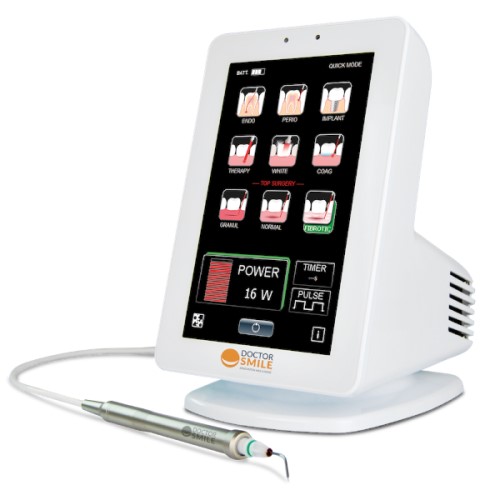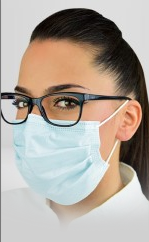 |
Lion's Dental Supply & Equipment
|
|
|
|
|
 |
|
|
|
|
Dental Hard and Soft Tissue Laser Units |

reg $ 7,499
$ 5,199
|
|
|
|
Lasers have been used in dentistry since 1994 to treat a number of dental problems. and have FDA approval.
some dentists are using lasers to treat:
Tooth decay. Lasers are used to remove decay within a tooth and prepare the surrounding enamel for receipt of the filling.
Gum disease. Lasers are used to reshape gums and remove bacteria during root canal procedures.
Biopsy or lesion removal. Lasers can be used to remove a small piece of tissue (called a biopsy) so that it can be examined for cancer. Lasers are also used to remove lesions in the mouth and relieve the pain of canker sores.
Teeth whitening. Lasers are used to speed up in-office teeth whitening procedures. A peroxide bleaching solution, applied to the tooth surface, is ''activated" by laser energy, which speeds up of the whitening process.
How Do Lasers Work in Dentistry?
All lasers work by delivering energy in the form of light. When used for surgical and dental procedures, the laser acts as a cutting instrument or a vaporizer of tissue that it comes in contact with. When used in teeth-whitening procedures, the laser acts as a heat source and enhances the effect of tooth-bleaching agents.
What Are the Pros and Cons of Using a Laser in Dentistry?
Pros
Compared to the traditional dental drill, lasers:
- May cause less pain in some instances, so reduces the need for anesthesia
- May reduce anxiety in patients uncomfortable with the use of the dental drill
- Minimize bleeding and swelling during soft tissue treatments
- May preserve more healthy tooth during cavity removal
Cons
The disadvantages of lasers are that:
- Lasers can't be used on teeth with fillings already in place.
- Lasers can't be used in many commonly performed dental procedures. For example, lasers can't be used to fill cavities located between teeth, around old fillings, and large cavities that need to be prepared for a crown. In addition, lasers cannot be used to remove defective crowns or silver fillings, or prepare teeth for bridges.
- Traditional drills may still be needed to shape the filling, adjust the bite, and polish the filling even when a laser is used.
- Lasers do not eliminate the need for anesthesia.
- Laser treatment tends to be more expensive -- the cost of the laser is much higher than a dental drill. Compared to about $600 for a standard drill, lasers can cost anywhere from a few thousand dollars to over $100,000 for one that can be used for tooth cutting. Prices are coming down.
|
Copyright © 2013 Web Design by Web.com Group, Inc. |
|
|
 |
 |
|
 |
|

